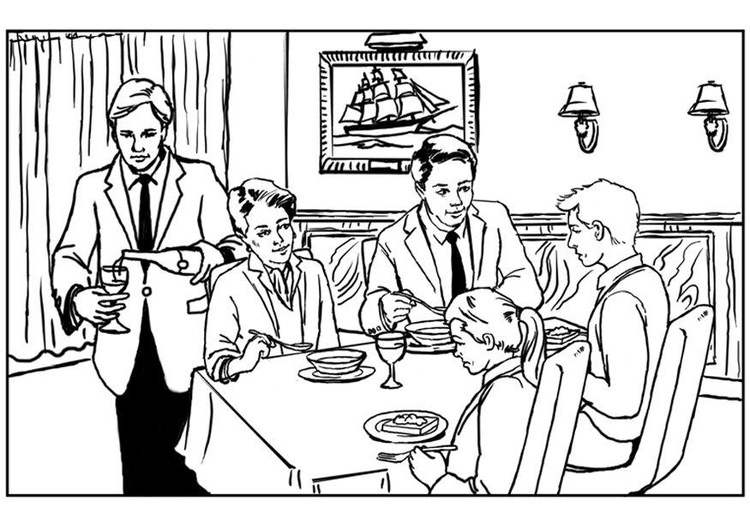The relationship you have with your waiter is remarkably similar to a first date. You’ve never met before. Someone usually sets you up. You meet in a restaurant. There’s a good chance they could be a total douchebag. If it turns out you don’t get along, you have to pretend you like each other for the next two hours. Like bad dates, you have to find ways to make the best of it.
Try not to forget that your waiter has been on thousands more of these bad “dates” than you have. He’s probably already had a handful of bad ones the same night he met you. Many waiters behave like jaded singles—we feel like we’re never going to have a special table who loves us for who we are. It’s not easy to open up and be vulnerable when you date so many assholes.
As a diner, one subtle thing you can do to stand out from the crowd is to make the first move. You don’t have to just sit there waiting for servers to come over and start talking to you. Speak up! There are a few good “pick-up” lines you can use to disarm their defenses. Of course, you have an equal chance of crashing and burning as you would trying to pick up somebody at a bar; no strategy is foolproof. But like a first date, you have nothing to lose. Here are a few phrases we recommend springing on your server next time you sit down:
“We’re really excited to be here!” – It’s hard for even the most disgruntled server to hate people who are enthusiastic about their dining experience. Since most diners are not even paying attention, it will come as a relief to your server that you actually care. Even if you don’t, pretend like you do. Most conscientious hospitality professionals will feel worse letting down an excited guest than someone who arrives to the table ambivalent.
“I think you took care of us last time.” – It doesn’t matter that you’re lying. It doesn’t even matter that you’ve never actually been to this restaurant before. Servers don’t remember most of the people they wait on anyway. You all look the same to us. But that doesn’t mean we won’t be flattered by the recognition. “Wow, I must have done a really good job last time,” the server will think to himself. Pretending you recognize him will juice the waiter’s confidence and encourage him to give your table a little extra love.
“We’ve never been here before!” – Waiters are always a little bit more gentle when they’re taking someone’s restaurant virginity. They will often ask you, “Is this your first time dining with us?” It’s annoying to have to hear it so often, but preempting the question will change the dynamic. The meta-message you’re sending is that you’re open to suggestions. Most waiters will savor the opportunity to play a more prominent role in your experience.
“Did this restaurant used to be [insert phony restaurant name]?” – There’s usually some kind of backstory behind every restaurant space. Few waiters will skip an opportunity to show off a little knowledge for their guests. Even if you don’t really care to know the answer, ask anyway! Small talk can be annoying but disrupting the rote pattern of the server’s welcome and steering the conversation into something other than food and drink will be a refreshing change of pace.
“Are you one of the owners?” – Don’t spring this line on your waiter too early. You’ll seem desperate. Most of the time, waiters get treated like pieces of meat. The ones who have a more proprietary work ethic sit around most nights like Cinderella wishing that someone, ANYONE will acknowledge their work. Asking if they’re an owner is a subtle yet effective way of flattering without pandering. If you sell it really well, you’ll have your waiter in your back pocket the rest of the night.




